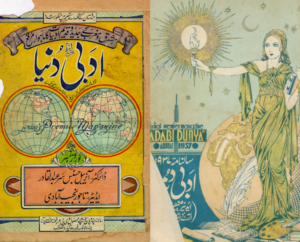“The conference made my understanding of world literature more nuanced, more complex and as something that is as unique as it is interlinked” – from Comparison as Relation: Multilingual literary regions and comparative colonialisms (December 2017).
“The workshop has been incredibly exciting. A lot of challenging and intriguing theories and methodologies have been discussed. This has seriously impacted on my historiographical understanding. MULOSIGE has led to a substantial enrichment of my bibliography and a revision of my epistemological approach” – from Comparison as Relation: Multilingual literary regions and comparative colonialisms (December 2017)
“The conference made my understanding of world literature more nuanced, more complex and as something that is as unique as it is interlinked” – from Comparison as Relation: Multilingual literary regions and comparative colonialisms (December 2017)
“During the conference the monolithic expressions of colonialism were dismantled, and collaborations were emphasised along with contradictions in the experimental enterprises” – from Comparison as Relation: Multilingual literary regions and comparative colonialisms (December 2017)
“I was introduced to theories of world literature only a couple of years ago, and the conference was an excellent opportunity for me to gain a deeper understanding of current debates in the discipline. In Ethiopia, which is a multilingual country, scholars of Amharic literature and historians do not engage in comparisons. The conference convinced me of the importance of introducing the MULOSIGE approach back home at Addis Ababa University. In order to continue the conversations we have started here in Delhi, I would like to organise a follow up workshop at AAU. In the immediate future, I will introduce the notions of “multilingualism”, “negotiation”, “ambivalence”, “colonial disjuncture” and “colonial encounter” in the theoretical framework of a study I am carrying out at the moment. Secondly, I will look into what has already been done (not much) on the history of the Ethiopian radio and I will encourage a young scholar to take up the theme for a doctoral study. In the long run, I will advocate grater comparative approaches to Ethiopian literatures at AAU” – from Comparison as Relation: Multilingual literary regions and comparative colonialisms (December 2017)
“MULOSIGE has encouraged me to look at my work in a more comparative perspective while not losing sight of specific historical contexts. It has also encouraged me to look beyond the ‘local’ and also look at the ‘local’ in a different way – as already embodying strands of the ‘world'” – from Comparison as Relation: Multilingual literary regions and comparative colonialisms (December 2017)
Testimonials from: Comparison as Relation: Multilingual literary regions and comparative colonialisms (December 2017)
“The workshop has been incredibly exciting. A lot of challenging and intriguing theories and methodologies have been discussed. This has seriously impacted on my historiographical understanding. MULOSIGE has led to a substantial enrichment of my bibliography and a revision of my epistemological approach” – Prof Uoldelul Cherati Dirar, University of Macerata (Italy)
“The conference made my understanding of world literature more nuanced, more complex and as something that is as unique as it is interlinked” – Prof Sadhana Naithani, Jawaharlal Nehru University (India)

“During the conference the monolithic expressions of colonialism were dismantled, and collaborations were emphasised along with contradictions in the experimental enterprises” – Prof Ravikant, Centre for the Study of Developing Societies (India)
“I was introduced to theories of world literature only a couple of years ago, and the conference was an excellent opportunity for me to gain a deeper understanding of current debates in the discipline. In Ethiopia, which is a multilingual country, scholars of Amharic literature and historians do not engage in comparisons. The conference convinced me of the importance of introducing the MULOSIGE approach back home at Addis Ababa University. In order to continue the conversations we have started here in Delhi, I would like to organise a follow up workshop at AAU. In the immediate future, I will introduce the notions of “multilingualism”, “negotiation”, “ambivalence”, “colonial disjuncture” and “colonial encounter” in the theoretical framework of a study I am carrying out at the moment. Secondly, I will look into what has already been done (not much) on the history of the Ethiopian radio and I will encourage a young scholar to take up the theme for a doctoral study. In the long run, I will advocate grater comparative approaches to Ethiopian literatures at AAU” – Prof Shiferaw Bekele, Addis Ababa University (Ethiopia)
“MULOSIGE has encouraged me to look at my work in a more comparative perspective while not losing sight of specific historical contexts. It has also encouraged me to look beyond the ‘local’ and also look at the ‘local’ in a different way – as already embodying strands of the ‘world'” – Prof Pragati Mohapatra, Indraprastha College for Women (India)
“Yes, the conference had an impact on how I think world literature! It generated a very productive parallel thinking about African and South Asian colonialisms and how thinking about world literature involves situated transregional and/or transnational projects” – Prof Kumkum Sangari, University of Wisconsin–Milwaukee (USA)

